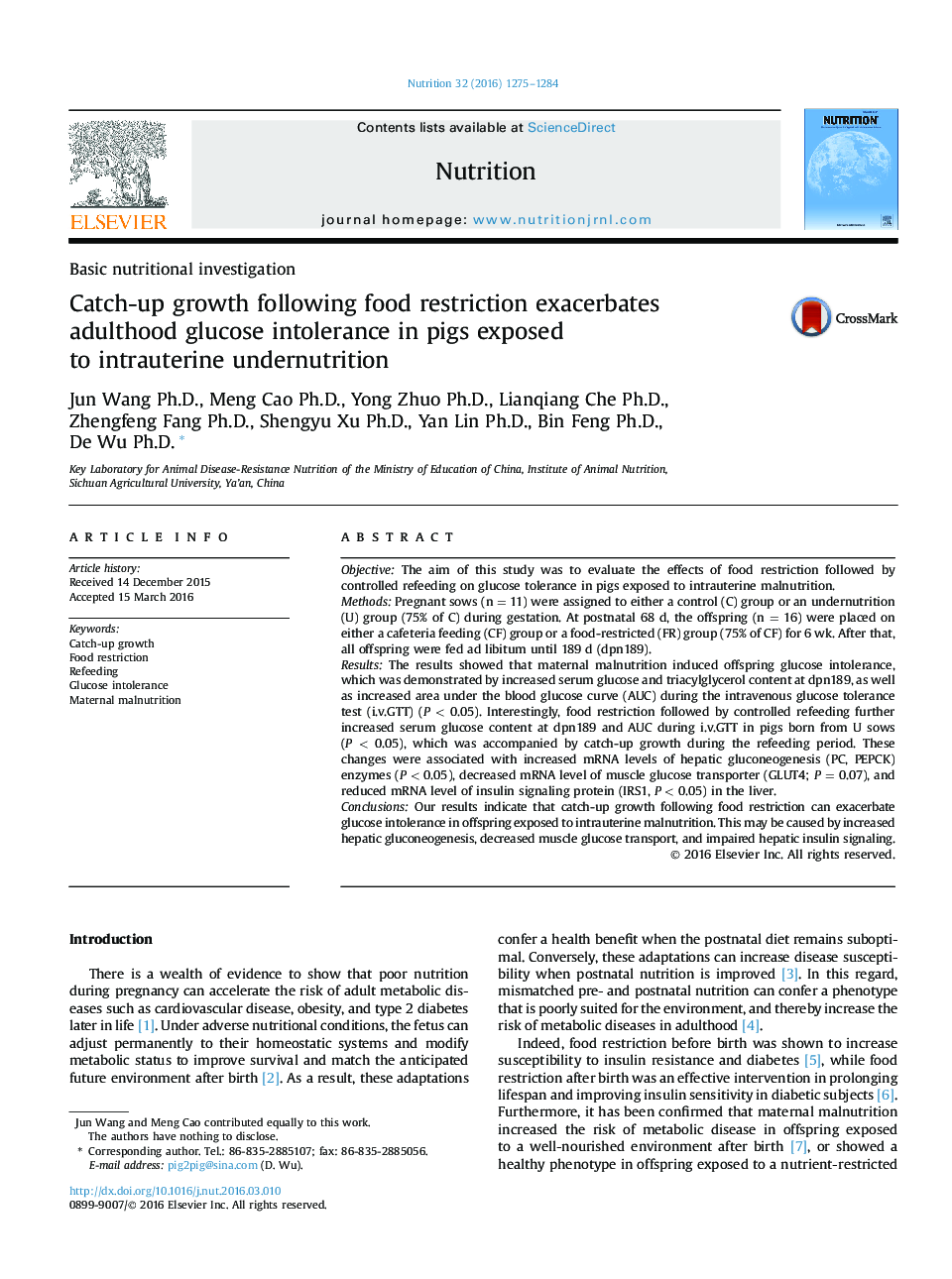| Article ID | Journal | Published Year | Pages | File Type |
|---|---|---|---|---|
| 3276079 | Nutrition | 2016 | 10 Pages |
•Maternal undernutrition induces offspring glucose intolerance.•Catch-up growth following food restriction exacerbates offspring glucose intolerance.•Increased hepatic gluconeogenesis is associated with offspring glucose intolerance.•Decreased hepatic insulin signaling is associated with offspring glucose intolerance.•Decreased muscle glucose transport is associated with offspring glucose intolerance.
ObjectiveThe aim of this study was to evaluate the effects of food restriction followed by controlled refeeding on glucose tolerance in pigs exposed to intrauterine malnutrition.MethodsPregnant sows (n = 11) were assigned to either a control (C) group or an undernutrition (U) group (75% of C) during gestation. At postnatal 68 d, the offspring (n = 16) were placed on either a cafeteria feeding (CF) group or a food-restricted (FR) group (75% of CF) for 6 wk. After that, all offspring were fed ad libitum until 189 d (dpn189).ResultsThe results showed that maternal malnutrition induced offspring glucose intolerance, which was demonstrated by increased serum glucose and triacylglycerol content at dpn189, as well as increased area under the blood glucose curve (AUC) during the intravenous glucose tolerance test (i.v.GTT) (P < 0.05). Interestingly, food restriction followed by controlled refeeding further increased serum glucose content at dpn189 and AUC during i.v.GTT in pigs born from U sows (P < 0.05), which was accompanied by catch-up growth during the refeeding period. These changes were associated with increased mRNA levels of hepatic gluconeogenesis (PC, PEPCK) enzymes (P < 0.05), decreased mRNA level of muscle glucose transporter (GLUT4; P = 0.07), and reduced mRNA level of insulin signaling protein (IRS1, P < 0.05) in the liver.ConclusionsOur results indicate that catch-up growth following food restriction can exacerbate glucose intolerance in offspring exposed to intrauterine malnutrition. This may be caused by increased hepatic gluconeogenesis, decreased muscle glucose transport, and impaired hepatic insulin signaling.
